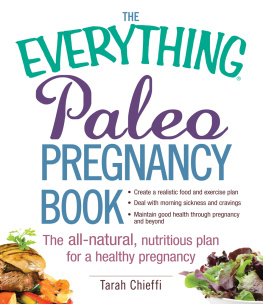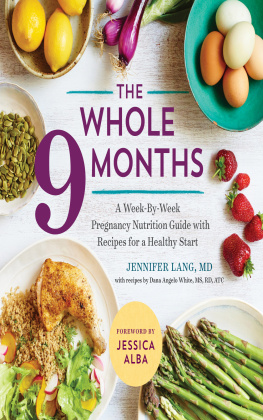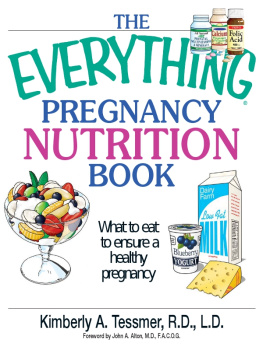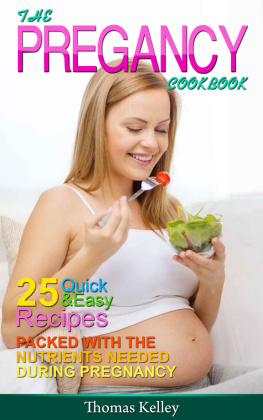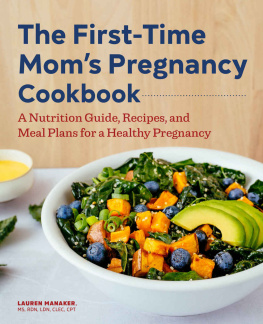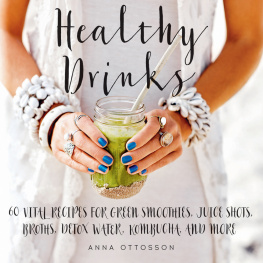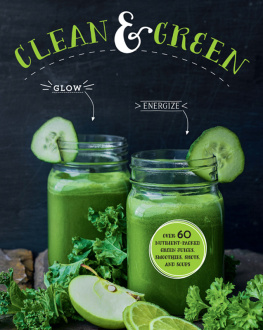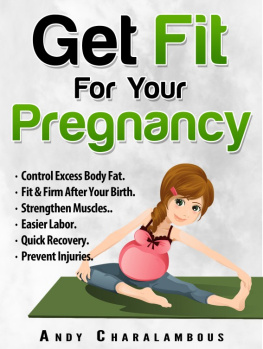Super Easy
Drinks, Soups,
and Smoothies
for a Healthy
Pregnancy
FIONA WILCOCK, M.Sc., R.P.H.Nutr.
CONTENTS
FOREWORD
Pregnancy is a time of great change and upheavalphysically, emotionally and spiritually. It is a time when the nourishment of the new life inside you is critical so you will find yourself looking more carefully at what you eat and having to take care with certain foods. Yet for some pregnant women, eating itself can be difficult for several reasons. At a time when your hormones may be making you feel nauseous anyway, the smell of cooking can be hard to take. Familiar foods may suddenly lead to heartburn, and constipation may make you reluctant to eat at all.

The importance of good nutrition in utero is without question; it has been clear for some time that what happens in those nine months is a major determinant of your babys long-term health and what you eat and what you dont will have enormous consequences throughout his or her life. But what happens if eating proper meals is or becomes difficult? What if you cant face being in the kitchen for more than a few minutes or you just dont crave foods or cant keep much down? Nutritious drinks may be one simple answer.
I wrote this book to help healthy women get great nutrition throughout pregnancy. My aim was to provide a host of different recipes and ideas so that even when you cant eat as youd like, you can still maintain a good pregnancy diet by having nutrient-packed food in liquid form, such as smoothies, juices and soups. Nor should you have to feel left out when everyone else is partying or youre in the mood for a special treat; the book contains some luscious party drinks and mocktails as well as great alternatives to your daily cups of tea or coffee.
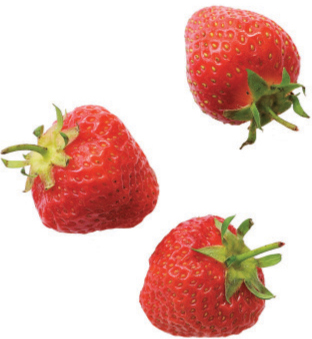
While not intended to replace your regular diet, the drinks will boost your nutritional intake when your needs are great and your healthy intentions are thwarted by feeling nauseous, or you are just short of time or energy. They should also take the place of caffeinated and alcoholic beverages, which are not recommended at this special time. There are even some that may help you overcome, or at least cope with, some common pregnancy complaints.
Each of the recipes has been nutritionally analysed so you can see at a glance what it contains, how many calories it will contribute to your daily diet and how its ingredients may help youand your babyin pregnancy and beyond. Many of the drinks are high in valuable nutrients while all of them are simpleand fairly quickto prepare. I hope you enjoy them!

Fiona Wilcock
WHY FOCUS ON DRINKS?

The topic of drinks in pregnancy is often focused on the negativewhat you shouldnt have, rather than what you can and should be drinking. So many women get stuck at the I must replace my high octane coffee with herb tea and Ill have an orange juice and drive home as Im not drinking, neither of which reflects the many positive reasons for thinking about the liquid part of our diets.
Whether you are pregnant or breastfeeding, your nutritional and hydration needs increase, and by choosing your drinks carefully you can meet both needs. This section provides you with a comprehensive background on how drinks can boost your pregnancy nutrition, and alleviate some common pregnancy complaints as well as keeping you hydrated. Prepare to focus on the positive!
The Importance of Hydration
Being adequately hydrated is necessary at every stage of life but during pregnancy and when you are breastfeeding, it becomes even more vital because of the many physiological changes that are taking place.
Before looking in more detail at the effect of pregnancy on the amount of fluid you need, it is important to understand the role of water in the body. The average woman is estimated to be composed of around 50% water; for a 130-pound (60 kg) woman, this means she contains about 8 gallons (33 liters) of water. Blood contains around 83% water by weight, muscle 76% and skin 72% and even bone contains 22% water by weight. Water is not only present in the body in fluids, but it also plays an essential role in carrying compounds, gases and nutrients around the body in blood, lymph and other fluids. It is also critical to many different metabolic reactions as well as helping to keep the body at the correct temperature.
Amazingly, our bodies are able to keep the large amount of water they contain in tight control. We produce a hormone (vasopressin), which regulates our water balance; it acts on the kidneys so they produce more or less urine as required. However, water is constantly being lostthrough respiration, perspiration, urination, defecation and other bodily processes. As the body relies on maintaining a pretty constant amount of water, it is vital for good health that we take in water from foods and drinks every day to be adequately hydrated. Water loss increases if you have a fever, are exercising or are in a hot place, so hydration at these times is even more important.
ARE YOU DRINKING ENOUGH?
An easy way of knowing whether you are taking in sufficient fluids is to look at your urine. If it is a dark color, you are not drinking enough; pale urine indicates that you are well hydrated.
HOW MUCH WATER DO YOU NEED?
Until recently there have been no internationally agreed recommendations for how much fluid is needed: the rule-of-thumb figure has generally been given as 68 glasses or 4864 ounces (1.52 liters) of water daily. In 2010, the European Food Standards Agency provided a Scientific Opinion on Dietary Reference Values for Water, which recommended that non-pregnant women need 64 ounces (2 liters) per day, while pregnant women require an additional 10 ounces (300 ml) and breastfeeding women an additional 2025 ounces (600700 ml). Around 7080% of water intake should be provided by drinks and the remaining 2030% by foods containing water (soups, fruit, vegetables, and so on).
WATER IN FOODS
Foods contain different amounts of water, all of which count toward your daily intake of 6490 ounces (22.7 liters) of fluids. The table (right) shows the water content of some common foods. The higher the water content in raw foods, the fewer the calories, so these foods also make ideal snacks as they wont add many calories.
HYDRATION NEEDS IN PREGNANCY AND WHEN BREASTFEEDING
It is estimated that two thirds of the weight gain of pregnancy can be attributed to water. This is accounted for by increases in blood volume; the growth of the uterus, placenta and breasts; and the development of amniotic and other fluids. On top of this is, of course, the developing baby who is composed of around 94% water by the end of the first trimester and 75% water at birth.



